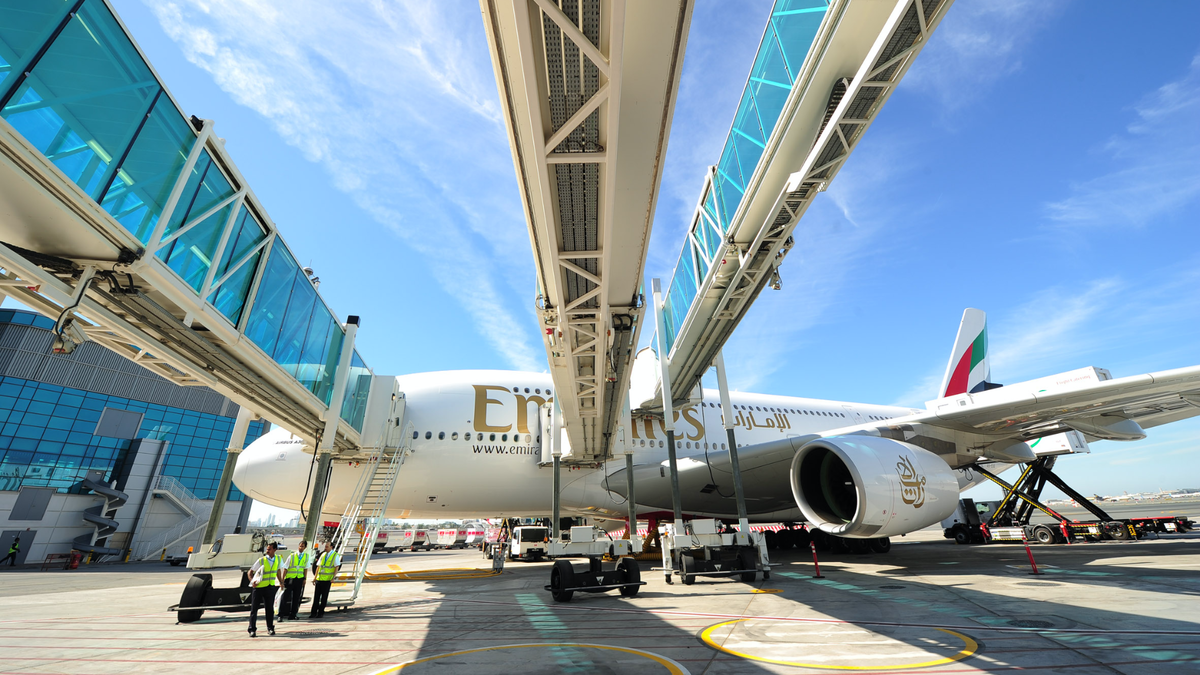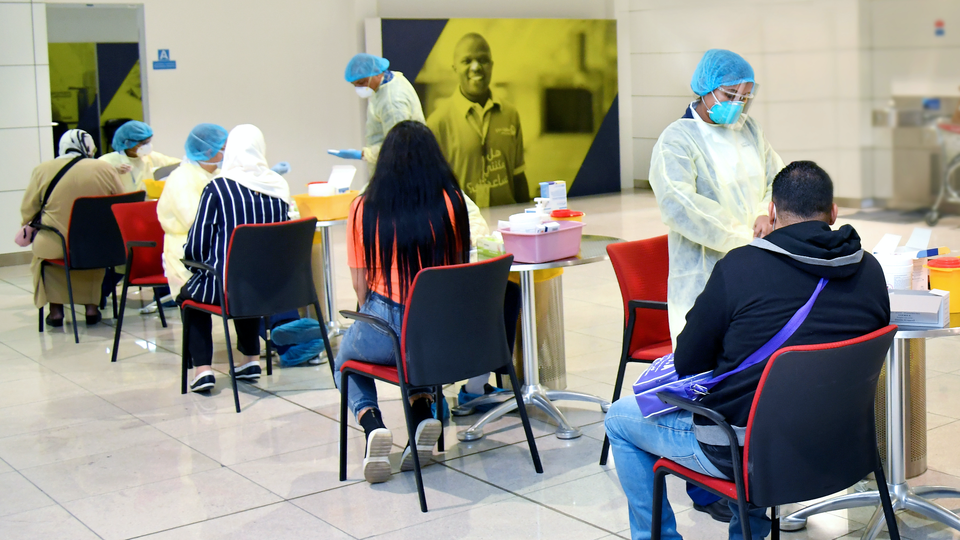Emirates begins pre-flight coronavirus tests on passengers
Passport, boarding pass, blood test results: could on-the-spot checks for COVID-19 become a new preflight ritual?

Emirates has started testing passengers for Covid-19 before flying out of Dubai, in an effort to contain the spread of the pandemic.
Passengers on Wednesday’s flight to Tunisia underwent a blood test at check-in before departing Dubai, according to the statement sent by the airline. Results were available within 10 minutes.
The Gulf carrier said it was the first to conduct the rapid blood tests, and plans to extend the procedure to more flights.
"We are working on plans to scale up testing capabilities in the future and extend it to other flights," remarked Adel Al Redha, Emirates Chief Operating Officer.
"This will enable us to conduct on-site tests and provide immediate confirmation for Emirates passengers travelling to countries that require COVID-19 test certificates."
Travel at the UAE remains in lockdown, with citizens requiring special exceptions to leave the country and no transit passengers allowed – a move which has restricted Emirates and Etihad to repatriation flights, rather then their usual role of connecting far-flung countries via their respective hubs at Dubai and Abu Dhabi.
Etihad plans to trial new self-service devices at its hub airport in Abu Dhabi by the end of April to identify travelers with medical conditions, including the early stages of coronavirus.
Etihad trials medical scanners
The contactless devices, developed with Australian company Elenium Automation, will monitor temperature, heart rate and respiratory rate at 'touchpoints' such as a check-in or information kiosk, a bag drop facility, a security point or immigration gate.
The system will automatically suspend the self-service check-in or bag drop process if a passenger’s vital signs indicate potential symptoms of illness, and then then divert to a teleconference or alert qualified staff on site, who can make further assessments and manage travellers as appropriate.
The one-month trial will initially include a range of volunteers and, as flights resume, outbound passengers.
Etihad says the technology is not designed or intended to diagnose medical conditions, but merely act as "an early warning indicator which will help to identify people with general symptoms, so that they can be further assessed by medical experts, potentially preventing the spread of some conditions to others preparing to board flights to multiple destinations," says Jorg Oppermann, Vice President Hub and Midfield Operations, Etihad Airways.
“It has long been the case that aircraft, with their highly sophisticated air-recycling systems and standards of hygiene are not the transmission vehicle for illnesses."
"We are testing this technology because we believe it will not only help in the current COVID-19 outbreak, but also into the future, with assessing a passenger’s suitability to travel and thus minimising disruptions."
Such tests may offer one way to get travelers back in the air with some measure of peace-of-mind. Airlines across the globe have had to halt flights and ground their fleets due to restrictions and a lack of demand while countries try to contain the coronavirus pandemic. The International Air Transport Association estimates the industry may suffer more than $490 billion in lost revenue this year.
Additional reporting by Bloomberg News


Virgin Australia - Velocity Rewards
07 Dec 2014
Total posts 173
Do they actually know what they're doing?
My (limited) understanding is that COVID19 'rapid' blood tests test for antibodies. This means :
- Typically they do not show results until at least 5 days after the infection manifests, because the body takes time to create antibodies. So they can give negative results for people that are contagious.
- They also can give positive results for people that have gone through the illness and come through the other side, because antibodies are still in their blood.
- There is also questions over accuracy of theses tests, with some potentially being only 30% accurate.
That's my understanding of why these type of tests are not being deployed by governments to diagnose COVID19 infection.
25 Sep 2013
Total posts 1245
I too am sceptical. If this testing method was truly so quick and foolproof then why haven't governments the world over rushed to implement them?
Qantas - Qantas Frequent Flyer
02 Jun 2015
Total posts 37
Correct! It's almost as pointless as checking temperatures!
Qantas - Qantas Frequent Flyer
14 Sep 2012
Total posts 381
Who are they kidding, there is absolutely no way I would agree to participate in any blood test at an airport. Handing over a sample of your blood outside a bonafied medical facility and/or controlled procedure conducted by your GP, specialist or hospital is huge risk in this day and age of heightened personal security.
Hi Guest, join in the discussion on Emirates begins pre-flight coronavirus tests on passengers